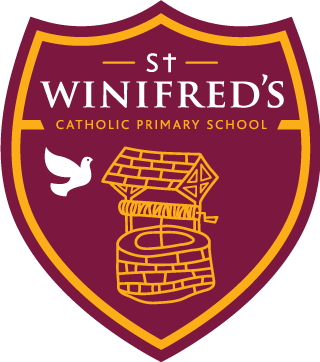Science
Statement of Intent
Intent
At St Winifred’s our science teaching inspires curiosity in our pupils allowing them to build on their natural disposition to observe the world, ask questions and investigate to find answers. Science is at the heart of the rapidly changing world in which we live. Science changes lives and is crucial to the world’s development and prosperity. Through the disciplines of biology, chemistry, and physics, children will gain a greater understanding of this world. Our objective is that the science curriculum gives each child the opportunity to be taught knowledge and skills to lead their own inquiries. Children will learn to become critical thinkers who are able to recognise the power of rational explanation and to respect the natural world whilst exploring their place in a changing physical world. Children will be immersed in key scientific vocabulary, which supports the acquisition of scientific knowledge and understanding.
All children will be provided with a science curriculum that reflects the equality and diversity policies and practices in school.
Implementation
Our science curriculum follows the guidance in the National Curriculum and links directly to scientific knowledge, skills, and understanding to ensure that learning is progressive and continuous. The science curriculum has a clearly indicated progression in key scientific knowledge and concepts, from EYFS to Year 6. Each of the 28 units of the study indicates the aspects of knowledge to be developed. We focus on the children’s ‘learning journey’ and explore where the knowledge and concepts of that particular unit fit within the learning for that particular aspect of science as the child progresses through the primary phase. Please see our science curriculum for detailed areas of study.
In the Early Years Foundation Stage (EYFS), children’s science education follows the early learning goals and the seven areas of interconnected learning and development. Specifically, the children learn about similarities and differences in relation to places, objects, materials, and living things. Please see the science curriculum for specific details.
Throughout each and every unit of study, teachers use strategies to ensure that children are interested and engaged in its content. At the start of each science topic, children will think about what they already know about a particular science topic, and then develop ideas about what they would like to know. Their inquiry starts with their own questions.
The emphasis in science lessons is on the children learning by doing. They take part in a broad range of practical investigations, ask their own questions about what they observe and make decisions about which types of scientific inquiry are likely to be the best ways of answering them. The children are encouraged to use the appropriate scientific vocabulary when studying each particular area of science. The opportunity to learn about scientists from a range of diverse backgrounds who are working, or have worked, in a particular area of science is also given.
Opportunities for cross-curricular work in science are used whenever possible, for example in maths, English, geography, art, and DT.
St Winifred’s is an inclusive school and teachers use Quality First Teaching to differentiate sufficiently so that all children can access lessons.
Impact
Children will be able to:
- articulate their understanding of scientific ideas and reason scientifically using scientific vocabulary
- demonstrate collaborative working
- question ideas and set up practical investigations and experiments
- demonstrate enthusiasm for science and an interest in further learning in this area
- understand the importance of science within the context of their understanding of the world
- learn about the contribution to science of a range of scientists from diverse backgrounds
- broaden their cultural capital through a variety of science-related school trips
- achieve age-related expectations in science at the end of each year.
Children will have a fun, engaging, high-quality science education, that provides them with the foundations for understanding the world that they live in. They can transfer this solid foundation to secondary school once they complete their primary education.

 St
Winifred's Primary School
St
Winifred's Primary School

